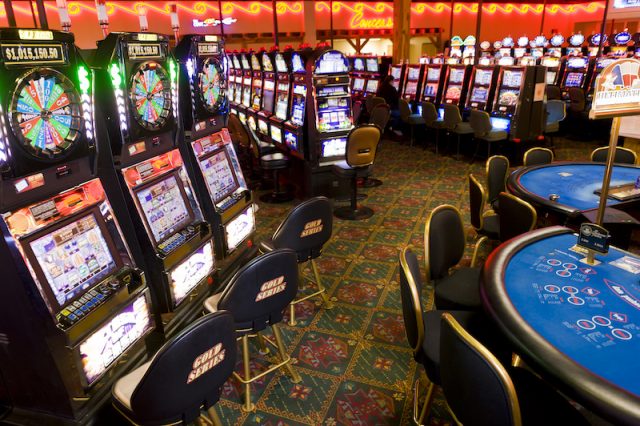
Casino games have long captivated a wide range of players, offering not only the thrill of chance but also a distinct experience designed for diverse kinds of players. Including the strategic minds who succeed through strategic thinking to more casual gamers who seek entertainment, casinos recognize the details of their audience and develop games that cater to these differing preferences.
In delving into the world of casino games, we encounter a rich tapestry of choices that interest all types of players. Poker tables with high stakes entice competitive individuals, while vibrant slot machines attract those seeking instant gratification. Whether it’s the chance to win big or simply savoring the social atmosphere, casinos create their game offerings to ensure that all players find a place where they feel welcome and involved. Understanding how these games cater to diverse types of players can enhance not only our appreciation of them but also our method for choosing which games to play.
Understanding Participant Categories
In the varied world of gaming entertainment, gamers can be classified into distinct categories based on their drives and preferences. These participant kinds range from the laid-back and social gamers, who enjoy the fun value and community interactions that gambling provides, to the more strategic and calculated players, who seek to boost their probabilities and winnings. Comprehending these various player types is essential for casinos to customize their offerings and create engaging experiences.
One frequent kind is the group-oriented player, who sees casino games as a form of group interaction and entertainment rather than a solemn gambling activity. These players often enjoy games that encourage engagement and togetherness, such as group-based games. Zbet Their attention is on the process rather than the result, so dynamic environments and shared moments are what they value the most.
On the other end of the range, competitive players are motivated by contest and the search of ability. They tend to lean toward games that require strategic thinking and strategy, such as blackjack, where their abilities can determine the result. This category often interacts with the games on a more intense level, utilizing insight and strategies to gain an edge. Understanding these incentives allows casinos to design atmospheres and game selections that suit to each participant’s distinct preferences.
Game Design Strategies
Gambling games are created with diverse player types in mind, utilizing various strategies to draw in and capture them. For recreational players, the focus is on ease and clarity. Games like slots are often visually appealing with straightforward mechanics. This enables players to enjoy the gameplay without a steep learning curve, fostering an welcoming atmosphere. The bright colors, catchy sounds, and thematic elements create a fun environment where players can quickly get involved and enjoying themselves.
For tactical players who enjoy a more profound level of engagement, games such as poker and blackjack offer complexity and skill-based elements. These games incorporate strategy and decision-making, appealing to players who excel on competition and want to exercise their cognitive abilities. The design of these games often includes complex rules and mechanics that challenge players to refine their skills and develop strategies over time, creating a fulfilling experience for those who appreciate mastering the game.
Moreover, community-oriented players are considered through games that highlight engagement and community. This includes live dealer games and multiplayer formats, which foster a sense of community among players. The design of these games typically incorporates communication tools and communal aspects, allowing players to connect and exchange insights. By building an environment where participation is encouraged, casinos can effectively involve social players, making the gaming adventure more enjoyable and unforgettable.
Improving Gamer Engagement
Gambling games have progressed notably to create a more engaging environment for gamers. Application developers focus on stunning graphics, dynamic soundscapes, and innovative gameplay mechanics that engage gamers into the gaming environment. By leveraging technology, such as immersive technology and AR, casinos ensure that participants feel as if they are part of a exciting atmosphere, enhancing not only the enjoyment of the activities but also the overall experience of being in a betting establishment.
Community engagement is another critical aspect in improving participant experience in gambling games. Several options are crafted to facilitate engagement among participants, whether through team play or chat features. This community feature attracts participants who enjoy interacting with fellow players while playing, fostering a community vibe community. Furthermore, social features can feature leaderboards, competitions, and rewards for cooperative play, which capture ambitious players and motivate them to return for further.
In conclusion, personalization plays a vital role in adapting the experience for various gamer demographics. Gaming establishments and game developers study participant habits and likes to present personalized gaming recommendations and rewards. By understanding the individual tastes of gamers, gaming establishments can offer personalized offers, bonuses, and new titles that appeal to each gamer, thus boosting their total enjoyment and commitment to the gaming venue.